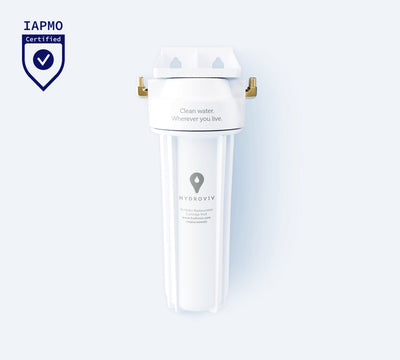Problems We Found With Columbus, OH Drinking Water
RSSKezia Snipe | Research Analyst
**Updated July 2021 to include current data
We've updated our assessment for Columbus drinking water to include 2021 data. Our Water Nerds looked at the most recent report for the City of Columbus Department of Public Utilities, U.S. Environmental Protection Agency (EPA), as well as from samples that we collect and analyze. We cross reference Columbus water data with toxicity studies in scientific and medical literature, and look at upcoming regulatory changes. The water filters that we offer at Hydroviv are optimized with these numbers in mind.
Source Of Columbus' Drinking Water
Depending on where you live, the City of Columbus draws surface water from either the Griggs, O'Shaughnessy, or Hoover Reservoirs, with supplementary groundwater from nearby wells. To find a map of your service area, click here.
High Levels Of Chromium 6 In Columbus' Drinking Water
Chromium 6 is an extremely toxic metal that is not currently regulated by the EPA. In recent years, chromium 6 in Columbus tap water has ranged from 150 to 250 parts per trillion. To put this into perspective, these levels are upwards of 12 times higher than the concentration determined to have negligible impact on cancer risk.
Disinfection Byproducts (DBPs) In Columbus' Drinking Water
DBPs are a category of emerging contaminants that form when chlorine-based disinfectants react with naturally-occurring organic matter. Although these chemicals are not currently regulated very well, the EPA has admitted that they are associated with an increased risk of bladder cancer, as well as kidney, liver, and central nervous system problems.
Chlorine In Columbus' Drinking Water
Like most other municipalities in the U.S., Columbus injects its water with chlorine to protect against waterborne illness. While not typically considered to be harmful on its own, many people find that removing chlorine from drinking water greatly enhances its taste and odor.
Still Have Questions?
Hydroviv uses water quality data to optimize water filters for each customer's water. The contaminants that we list above are what we consider to be major “points of emphasis” that we use to build water filters that are built specifically for Columbus drinking water quality, but our filters provide broad protection against a wide range of contaminants, including lead, mercury, and VOCs.
Recommended Articles For YouAre Disinfection Byproducts Dangerous In My Drinking Water?
There's Chromium 6 In My Water. What Do I Need To Know?
Reasons Why A Reverse Osmosis Water Filter Is Probably Not For My Family




